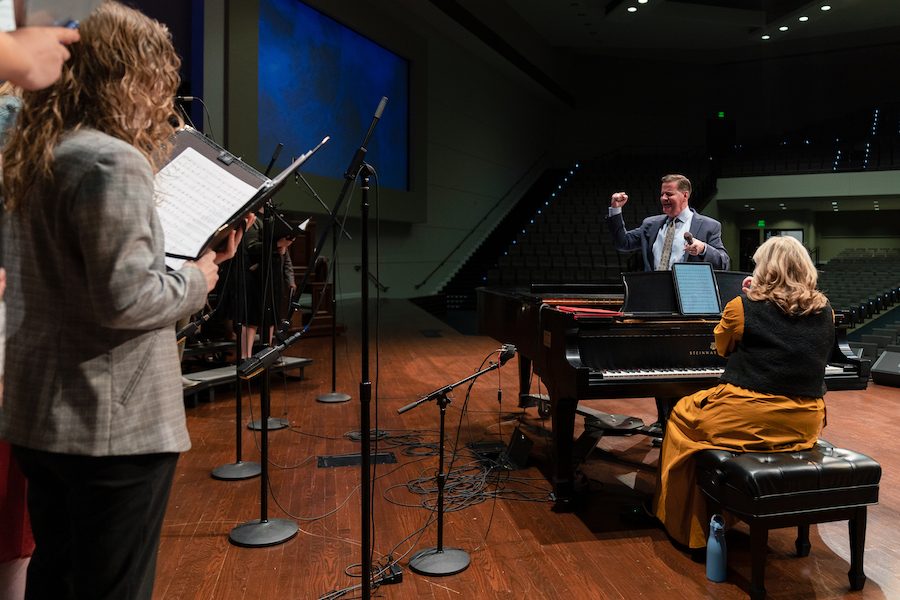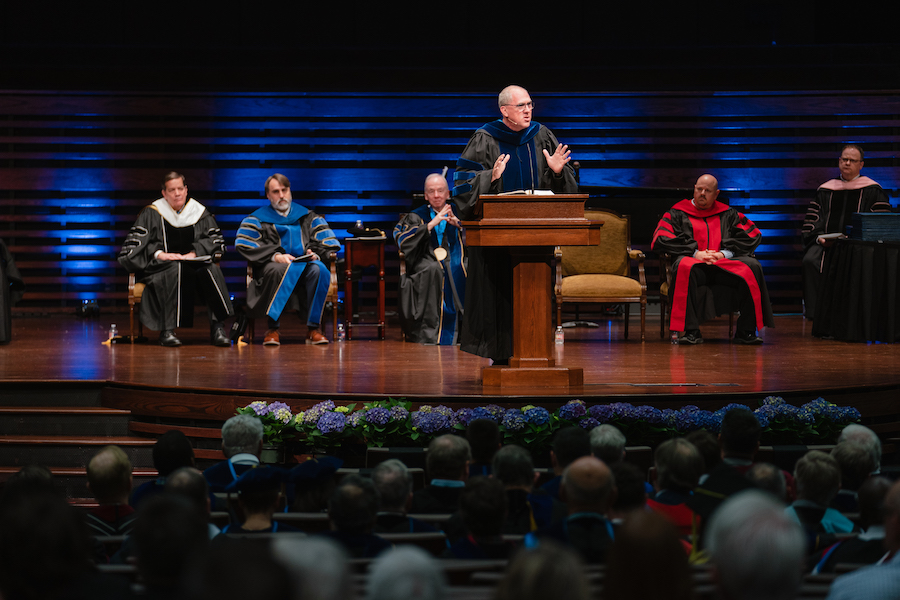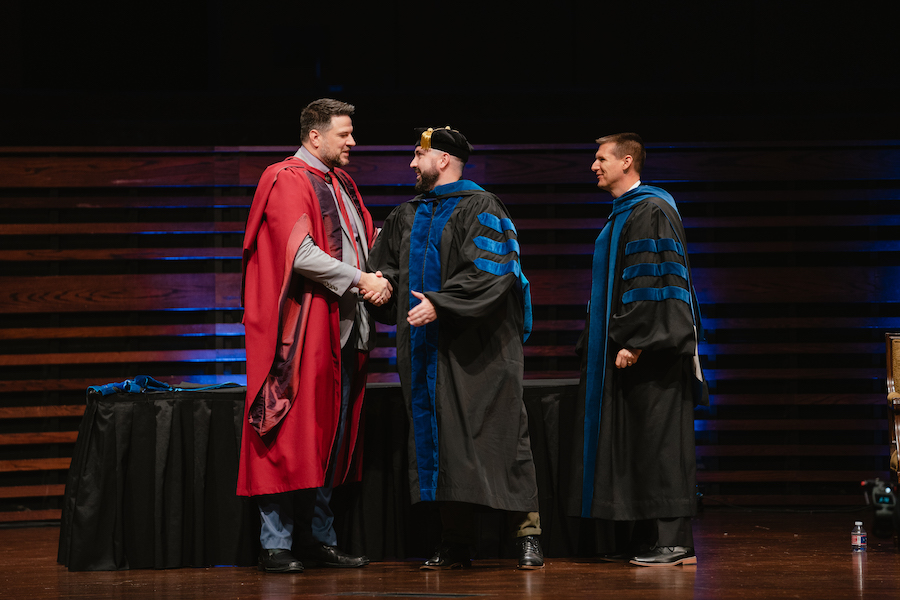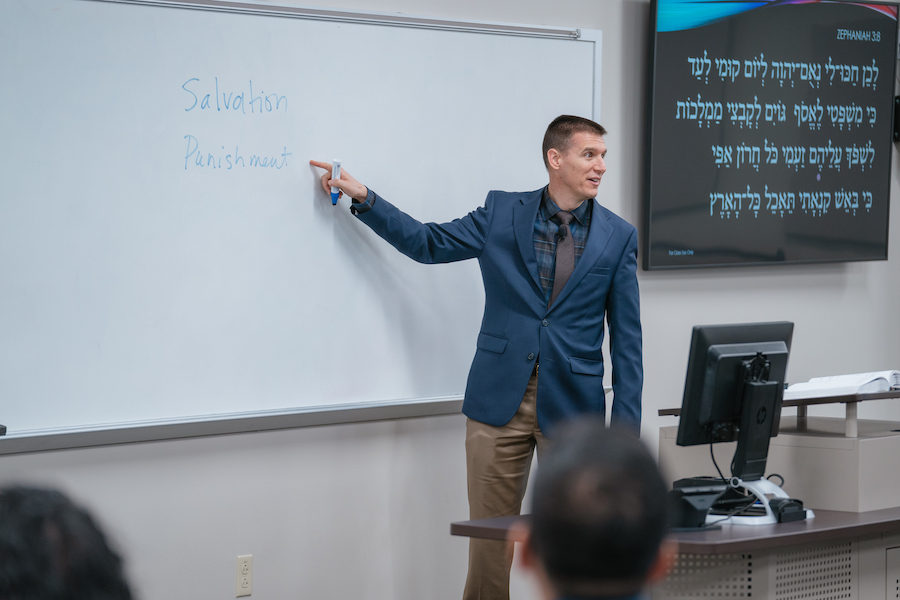Southwestern team ministers to refugees, university students in Republic of Georgia
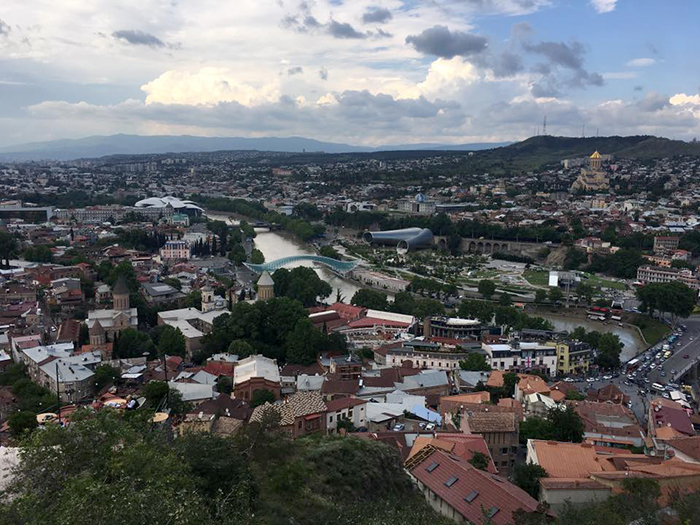
In a small refugee resettlement community in the Republic of Georgia, one elderly woman is forced to live with rain-damaged furniture in a house that smells of mildew. She cannot afford to purchase a tarp to cover the unfinished roof, so rain has seeped through, ruining towels, blankets, beds and comforters.
She and hundreds of families in this Georgian resettlement community were forced to leave their homes in 2008 during a Russian-Georgia conflict that displaced hundreds of thousands of people. Her son was killed in the Russian bombings, her house was destroyed, and her land was left uninhabitable.
During a mission trip to Georgia, May 24 – June 12, Southwestern Bachelor of Arts student Sierra McCoy and other local missionaries were able to help provide the family with a tarp and a few additional items. But it was the conversations about the Gospel, McCoy says, that she hopes will ultimately yield life-changing results.
McCoy and 15 other Southwestern students and faculty ministered in the Republic of Georgia for more than two weeks, partnering with missionaries to bring the message of the Gospel to refugee communities, university students, and other Georgians throughout the cities of Gori and Tbilisi. McCoy describes the spiritual climate of Georgia as “incredibly dark.” Although most Georgians broadly identify as Orthodox Christian, for many, it is by name and tradition only.
As the team of Southwestern students ministered on university campuses and hosted gatherings to show the “Jesus” film, they encountered this challenge of deeply ingrained beliefs and traditions. “To be Georgian is to be Orthodox,” McCoy explains.
Many own Bibles and might even be able to recite some verses from Scripture, but the mission team found that few people knew anything of what the Bible actually says, and even fewer knew the message of the Gospel. So it became important in their evangelism efforts to explain the importance of Scripture as their source of truth, not cultural and broad religious traditions. “Knowing this,” Master of Arts student Angel Padilla says, “we tried to build relationships and use the Word of God to bring out the truth.”
Some evangelism attempts resulted in frustration due to indifference or hostility, but the Southwesterners also engaged in many conversations with people who were attentive and curious. In one conversation with two young women at a university in the capital city of Tbilisi, Master of Arts student Lacey Crews was able to easily initiate a conversation about the Gospel. The more Crews explained to the students, the more the two women wanted to learn and understand.
“They asked us how what we believed compared to other religions, and we answered their questions with help from the Holy Spirit,” Crews says. After some time in conversation and guided reading through Scripture, the women ultimately decided that they were not ready to accept Christ, but wanted to read the Bible for themselves first. “We accepted that and continue to pray for them, knowing that the Word is enough,” Crews says.
Ultimately, at least 18 people were saved throughout the two weeks the Southwesterners ministered in Georgia, and even more people heard the Gospel for the first time. Padilla explains that he was reminded of the importance of sharing with people even if they do not respond. While visiting a medical university, a student heard the Southwestern mission team evangelizing, approached Angel, and expressed his desire to be saved. Having already heard the Gospel message before, he was ready to respond.
“In many conversations we had, I think we planted the seed. Now it is up to God to change the hearts of the Georgians,” Padilla says. “God is good!”
